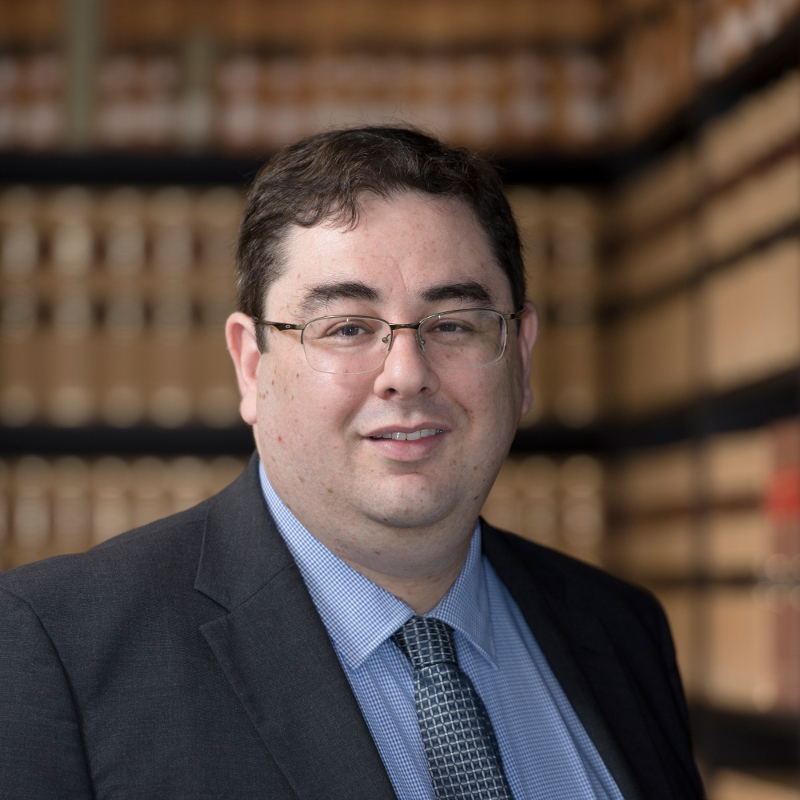 10 Questions for Dr Andre Oboler: Expert on online anti-Semitism, The Australian Jewish News, October 31 2008, Life pg 16
10 Questions for Dr Andre Oboler: Expert on online anti-Semitism, The Australian Jewish News, October 31 2008, Life pg 16
When did it first occur to you to research online anti-Semitism?
In late 2004, I was an officer of the students’ union at a UK university, as well as President of the Jewish society on campus. In a debate within the union council, the topic of Israel, Zionism and Jews came up. The university was a good environment for Jewish students, so I was quite surprised at some of the arguments I heard during that debate, which one student told me stemed frm online. Afterwards I did the searches myself, the results on basic things like “Zionism” were terrible. The antisemites were dominating the google results on almost all searches I tried. I contacted the Jewish community asking who dealt with this and what was being done. The response I got was that no-one was dealing with it. Thsi was the start of Zionism On The Web – a website I set up specifically to counter the racist arguments that were showing up in Google.
You invented the term “Anti-Semitism 2.0”. Can you give a short definition?
The core of Antisemitism 2.0 is the use of web applications – Facebook, Wikipedia, YouTube, etc – to spread a social acceptability of antisemitic attitudes and discourse. The values on the social web (Web 2.0) are still being shaped, and antisemitism 2.0 is an attempt to make racism acceptable and perhaps even “cool”, while also providing explanations to make those accepting these racist attitudes dismiss the arguments of people trying to correct them. Given the global nature of the web and the viral like spread that is possible in Web 2.0, the risk of a new global wave of antisemitism, and an acceptability that numbs good people’s response against it, is real.
What were your main findings of your research (the most important)?
There is still regular antisemitism on the web; there is the blatant posting of racism that is easily identified and dealt with. Because of the more blatant anti-semitism, the subtle anti-Semitism is largely ignored. My research has shown how hard it can be to get this more subtle material dealt in Wikipedia, Facebook and Google Earth in particular. In some cases it has taken over 18 months to get rather clear antisemitism removed.
How dangerous is the online anti-Israeli and/or anti-Semitism in the social networks in your opinion?
It is extremely dangerous. Within 5 years it may be too late to reverse the social trend. What starts online will not end online. I would rank this as the most serious threat to Jewish people after a nuclear Iran and the Durban II “anti-racism” conference. The first poses a physical threat and increases the potential capacity of terrorists around the world. The second has already made a mockery of human rights norms and international law, and will soon make the global defence against racism even more fractured and brittle, as the international consensus that resulted from World War II is destroyed.
How influential do you believe the web is?
The influence of the web is huge. The top few websites account for most of traffic on the internet. This is where hate can spread… providers like Google, Microsoft, Yahoo and Wikimedia have a particular responsibility to the public, but at this point even they lack the expertise to properly respond. If we do nothing we risk a return to the social attitudes of Nazi Germany – we risk human life again becoming valueless. Tragedy will surely come to any society that allow this to occur.
What are the most recent developments?
Google Earth has removed the replacement geography I’ve previously written about, and Facebook have finally removed the “Israel is not a Country” facebook group. Google’s response is more significant as it is systematic change to the system, in order to prevent repeat problems. Facebook’s response is a one off removal of a piece of racist user content. Google needs to create a new approach that allows user-generated content, but controls it to prevent its use for racism, terrorism or information warfare. Facebook still needs to realise it has a systemic problem.
Do you think anti-Semitism on the web is increasing?
The question is not whether there is more racism online, the question is whether more people are being exposed more often to racism, and whether it is becoming more acceptable to be a racist. I would have to say yes. The distinction is important, as until major organisations and governments get to grips with measuring the problem, and indeed defining what it is that needs measuring, progress will be impossible.
How do you fight against this online hate?
First we must come up with new approaches to monitoring it. It is not enough to show pictures of problematic websites. We know the hate is out there – the question is not how impressive the worst of it is, but how much impact it has on society. Once we begin to measure we can prioritise taking a risk-management approach, we can mitigate the worst of the problems as best we can, and use education both online and off line to rebuild societies defences against hate.
In your opinion, what can we and our children expect of antisemitism in the future?
There is a clash of cultures between online values and those of the real world. Online, the highest value is freedom – freedom from the constraints, judgements and repercussions that are a result of living in society. Today the problem is that such values – anonymity and absolute freedom to do as one pleases – are the values in main stream online communities. In the future, I hope we bring some real world values to these communities, create a social pressure that says: “It is not acceptable to attack people in the community based on their religion, sexuality, or the colour of their skin. We’ve got a long way to go before that happens.
What can Australian Jews do?
Australia is in a unique position. In most ways be are a fairly isolated country. Online, however, Australians are as connect and as much a part of their online societies as anyone else. There is nothing stopping Australia activists taking the lead. Australia’s multiculturalism allows us to build alliances and work together with others against the common problem of online hate. We just need to set this as our goal, and develop the skills and resources that are currently in short supply across the world. Here is an opportunity for Australians to make a global differences.
